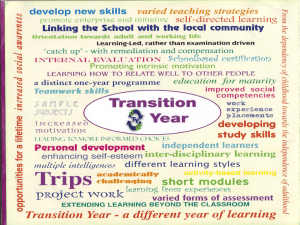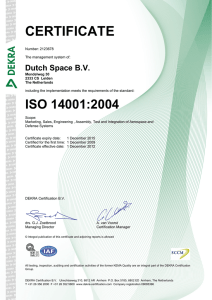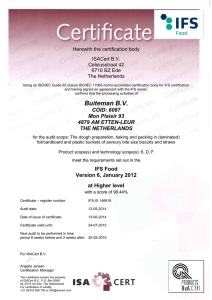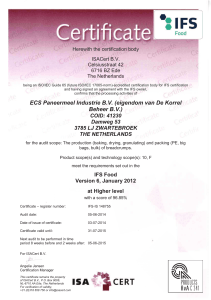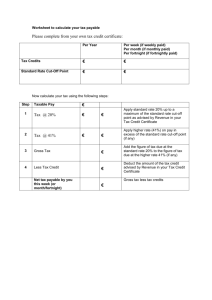NEW YORK STATE EDUCATION DEPARTMENT
advertisement
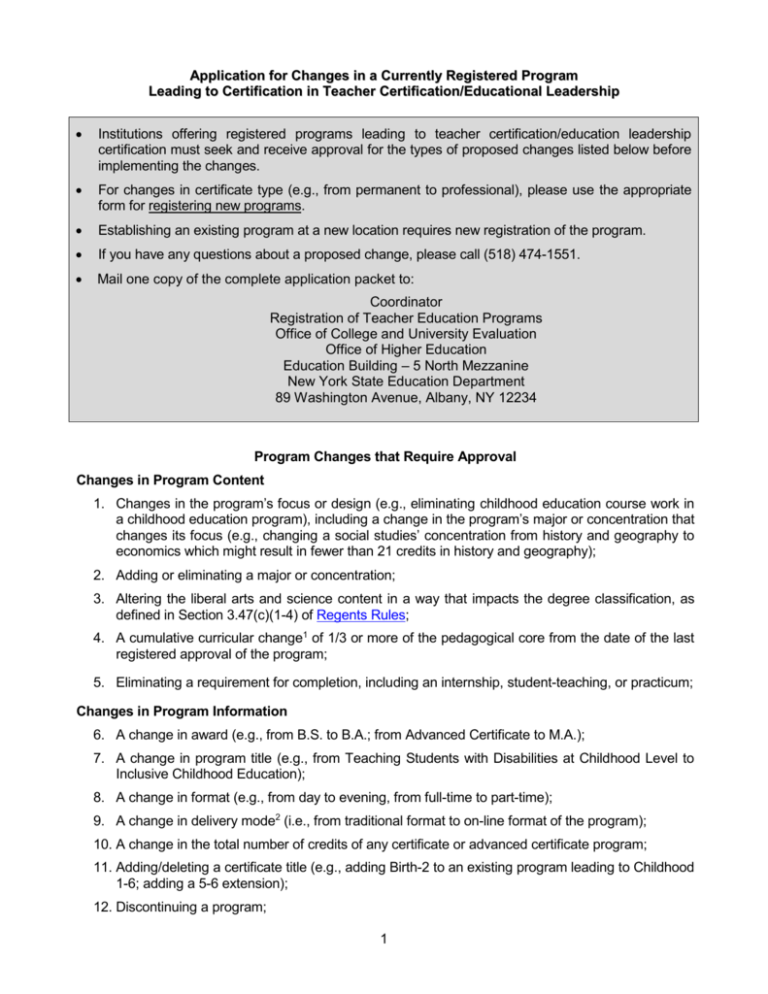
Application for Changes in a Currently Registered Program Leading to Certification in Teacher Certification/Educational Leadership Institutions offering registered programs leading to teacher certification/education leadership certification must seek and receive approval for the types of proposed changes listed below before implementing the changes. For changes in certificate type (e.g., from permanent to professional), please use the appropriate form for registering new programs. Establishing an existing program at a new location requires new registration of the program. If you have any questions about a proposed change, please call (518) 474-1551. Mail one copy of the complete application packet to: Coordinator Registration of Teacher Education Programs Office of College and University Evaluation Office of Higher Education Education Building – 5 North Mezzanine New York State Education Department 89 Washington Avenue, Albany, NY 12234 Program Changes that Require Approval Changes in Program Content 1. Changes in the program’s focus or design (e.g., eliminating childhood education course work in a childhood education program), including a change in the program’s major or concentration that changes its focus (e.g., changing a social studies’ concentration from history and geography to economics which might result in fewer than 21 credits in history and geography); 2. Adding or eliminating a major or concentration; 3. Altering the liberal arts and science content in a way that impacts the degree classification, as defined in Section 3.47(c)(1-4) of Regents Rules; 4. A cumulative curricular change1 of 1/3 or more of the pedagogical core from the date of the last registered approval of the program; 5. Eliminating a requirement for completion, including an internship, student-teaching, or practicum; Changes in Program Information 6. A change in award (e.g., from B.S. to B.A.; from Advanced Certificate to M.A.); 7. A change in program title (e.g., from Teaching Students with Disabilities at Childhood Level to Inclusive Childhood Education); 8. A change in format (e.g., from day to evening, from full-time to part-time); 9. A change in delivery mode2 (i.e., from traditional format to on-line format of the program); 10. A change in the total number of credits of any certificate or advanced certificate program; 11. Adding/deleting a certificate title (e.g., adding Birth-2 to an existing program leading to Childhood 1-6; adding a 5-6 extension); 12. Discontinuing a program; 1 Establishing New Programs Based on Existing Registered Programs 13. Combining a registered undergraduate program in the appropriate content area and a registered graduate program leading to teacher certification as a dual degree program (e.g., a B.S. and an M.S. combined as a five-year B.S./M.S.); or 14. Creating a new program from a concentration/track in an existing program. Note: 1When a curricular change occurs, the institution must ensure that the revised program meets all the regulatory requirements. 2Please refer to Guidelines for Registering Distance Education Programs. 2 NEW YORK STATE EDUCATION DEPARTMENT Office of College and University Evaluation Request for Change in a Currently Registered Program Leading to Certification in Teacher Certification/Educational Leadership A. Name of institution: B. Address of institution: C. CEO or designee* Name and title: Signature and date: D. Contact person, if different Name and title: Telephone: Fax: E-mail: E. Current program title: F. Current award: G. Current HEGIS code: H. Program code: I. Current certificate title(s) to which the program leads: J. CEO or designees* of the participating institutions (only applicable to joint programs) Name and title: Signature and date: * THE CEO/CHANCELLOR/PROVOST SHOULD INFORM THIS DEPARTMENT IN WRITING WHEN THERE IS A CHANGE IN THE DESIGNATED PERSON. 3 Proposed Changes: Check all the proposed changes that apply and provide the information if applicable. Section I. Changes in Program Content: Describe and explain the proposed changes; provide a side-by-side comparison of the existing and newly modified programs. If new courses are being added as part of the noted change(s), provide a syllabus for each new course and list the name, qualifications, and relevant experience of faculty teaching the course(s). Syllabi should include a course description and identify course credit, objectives, topics, student outcomes, texts/resources, and the basis for determining grades. Changes in the program’s focus or design Adding or eliminating a major or concentration Altering the liberal arts and science content A cumulative curricular change of 1/3 or more of the pedagogical core Eliminating a requirement for completion 4 Section II. Changes in Program Information A change in degree award (e.g., from B.S. to B.A.) a) Indicate proposed degree award: b) Indicate how the program meets Section 3.47 and Section 3.50 of the Regents Rules on degree requirements: A change in program title Indicate proposed program title: A change in format (e.g., from day to evening, from full-time to part-time) a) Indicate proposed format: b) Describe availability of courses and any change in faculty, resources, or support services: c) For a request to add or change a program format, use the Scheduling Table to show the sequencing and scheduling of courses in the program. A change in delivery mode (e.g., from traditional format to on-line format of the program) a) Indicate proposed delivery mode: b) Describe availability of courses and any change in faculty, resources, or support services: A change in number of credits Indicate the current number of credits: Indicate proposed number of credits: Adding a certificate title (e.g., adding 5-6 extension) a) Indicate certificate title(s) to be added: b) Use the Program Chart to indicate how the courses meet the regulatory requirements for the added certificate titles. Deleting a certificate title Indicate certificate title(s) to be deleted: Discontinuing a program Indicate a date* to discontinue the program: *In the event that any students do not complete studies in this/these curriculum(s) by the termination date, it is the responsibility of the institution to request an extension of the registration period for the program or to make other arrangements for those students to complete their studies. 5 Section III. Establishing New Programs Based on Existing Registered Programs Combining two existing programs into a dual degree program* a) Indicate program title, degree award, program code, and certificate title(s) (if applicable) of the existing programs: Degree Award Program Title Program Code Certificate Titles Program 1 Program 2 b) Indicate program title, degree award, and certificate title(s) of the proposed dual degree program: Program Title: Degree Award: Certificate Title(s): c) List the courses that will be counted toward both degree awards: d) Indicate length of time for candidates to complete the proposed program: e) Use Scheduling Table to show the sequencing and scheduling of courses in the dual degree program. *Only candidates with the capacity to complete the requirements of both degrees shall be admitted to a dual degree program; no degrees or certificates may be issued until the entire dual degree program is completed. Creating a new program from a concentration/track in an existing program If the new program is based entirely on existing courses in a registered program, provide the current program name, code, and the following information: Note: this abbreviated option applies only if a master plan amendment is NOT required and there are no new courses or changes to program admissions and evaluation elements. If these conditions are not met, submit a new registration application for the proposed program. a) Information from the Application for Registration of a New Program form: cover page (page 1), Sample Program Schedule form, and faculty information charts (full-time faculty, part-time faculty, and faculty to be hired); b) Brief description of the proposed program and rationale for converting the existing coursework to a separately registered program; c) Expected impact on existing program; d) Adjustments the institution will make to its current resource allocations to support the program; and e) Statement confirming that the admission standards and process and evaluation methods are the same as the existing registered program. 6
